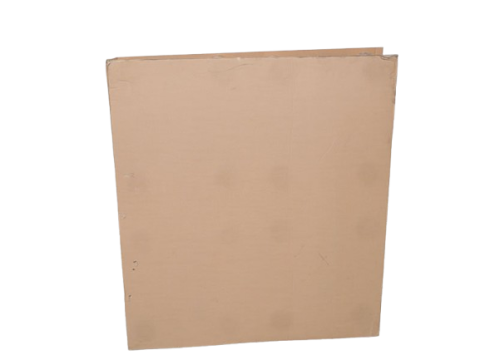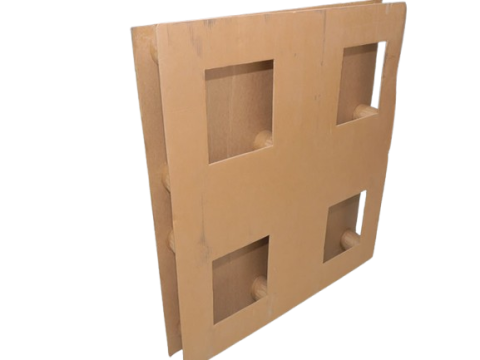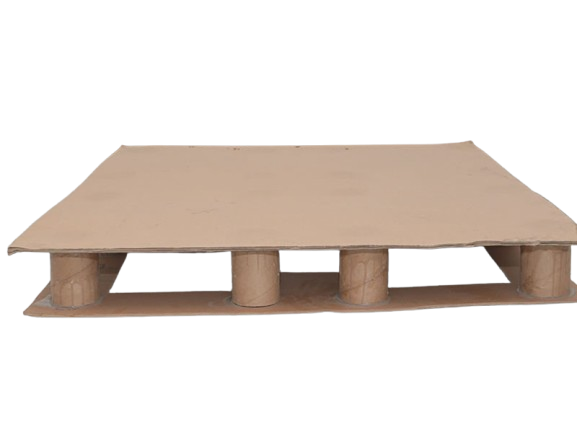Cardboard Pallet
The bulk of Kenya’s primary tea is stored and/or exported on wooden pallets, as is all other tea from tea producing countries. For Kenya alone, this requires approximately 250,000 to 300,000 pallets per annum of which those destined for export to the EU have to be fumigated. On arrival at destination the pallets are discarded and in most cases destroyed by incineration. They never return. The average weight of a wooden tea pallet is 22kg. In order to produce 300,000 pallets, approximately 6,600 tonnes of cut timber equating to 10,000 tonnes of raw timber per annum. This coming from Kenya’s rapidly dwindling forest lands.

To resolve the problem the undersigned, with support from Sondhi Trading Limited and East African Packaging Industries Ltd, has developed a cardboard alternative to the wooden pallet which is robust enough to withstand the rigours of transportation under load and capable of supporting an evenly distributed load of up to 3,000 kg. (See attached picture double-stacked pallets.) The material for the multipurpose cardboard tea pallet (CTP) requires approximately 36% of the timber used to construct the wooden pallet of similar size, a saving in timber of approximately 64%. This saving is further enhanced by the fact that the CTP is totally recyclable back into paper products. This is sufficient to manufacture approximately 2,200 tonnes of re-usable paper.

The cardboard tea pallet as referred to above is constructed from two layer pads of heavy-duty corrugated board sandwiching 16 tubular paper column supports, 100/122mm dia. x 110mm high. The positioning of the support columns allows ample space for four-way entry of forklift truck and hand trolleys when required to move the pallets under load. The benefits of converting from wooden to cardboard pallets are as follows:
- Lighter: Constant weights 8/9 kg. – Approximately 64% weight saving against wooden pallet.
- Safer to handle: No splinters or harm from protruding nails.
- No need for chemical treatment. – Thereby protecting the environment.
- Totally recyclable back into paper products.
- More eco friendly: Approximately 64% saving on timber. Saving on forests amounting to approximately 1000 hectare.
- No damage to sacks from nails.
- Less space required for storage of components.
- Quicker and easier to assemble.
- Price: Comparable to commercially manufactured wooden pallet.
- Will support similar load as the wooden pallet i.e. in excess of 3,000 kg.
- Labour saving on handling
- The loaded pallets can be strapped, stretch-wrapped or shrink-wrapped.

